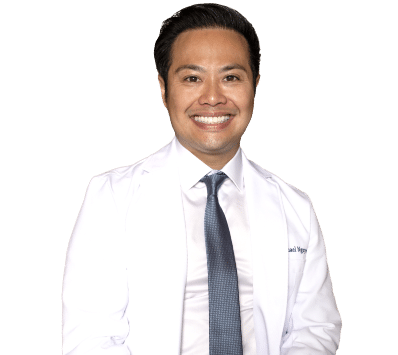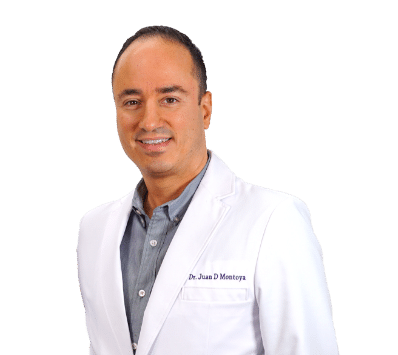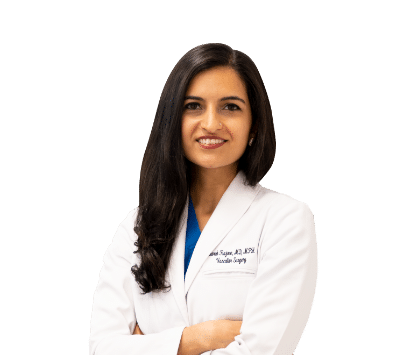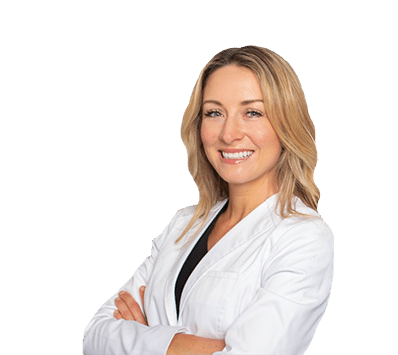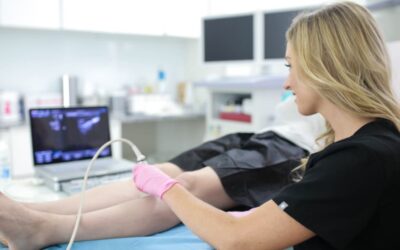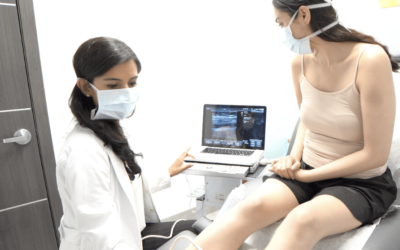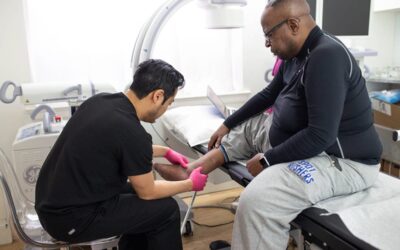What is a Vein Doctor Called?
What is a Vein Doctor Called?
A vein doctor, i.e., a medical professional specializing in the diagnosis and treatment of vein problems, is called a phlebologist. The name “phlebologist” is derived from “phlebology,” which is the branch of medicine dealing with vascular health and vein conditions, such as spider veins, varicose veins, chronic venous insufficiency, and deep vein thrombosis. If you have any of these problems, or other signs and symptoms of vein disease, you should contact a phlebologist.
Vein doctors can come from all fields of medicine, including cardiology, anesthesiology, internal medicine, dermatology, and others. The only requirement to become a vein doctor is specialized training in the diagnosis and treatment of vein problems. They should also have advanced training in the latest minimally invasive spider vein and varicose vein treatments. However, while dermatologists can also provide vein treatments, you should ideally opt for treatment from dedicated phlebologists.
What Does a Phlebologist do?
A phlebologist, also known as a vein doctor, specializes in the diagnosis and treatment of vein problems and chronic venous insufficiency, a medical condition wherein the collapse of vein valves makes blood flow backward and accumulate in the leg veins. The phlebologist will examine your leg veins and blood vessels to diagnose the root cause of your problems and curate a personalized spider and varicose vein treatment plan.
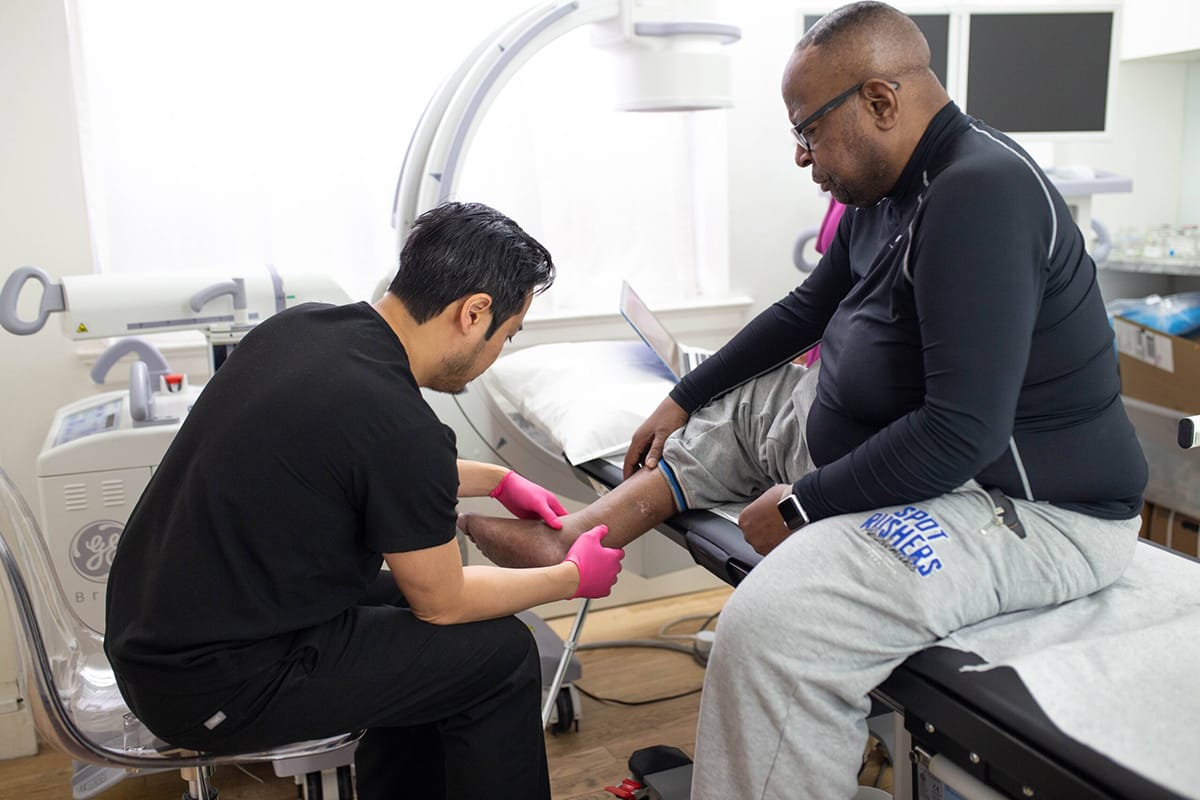
When Should I see a Vascular Doctor?
You should consult a vascular doctor if you have the signs and symptoms of chronic venous insufficiency, the root cause of most vein problems. Venous insufficiency is a circulatory disorder wherein your vein valves collapse, which makes blood flow backward and accumulate in the leg veins. The continued accumulation of blood in leg veins leads to vascular dilation, which eventually leads to spider veins, varicose veins, and other signs and symptoms of vein disease.
You should ideally consult a vascular doctor when you notice the earliest signs and symptoms of vein disease. These include leg heaviness, frequent leg cramps, restless leg syndrome, leg pain, and leg swelling — the symptoms worsen at the end of the day or after long periods of sitting or standing still. These symptoms can be mistaken for general exhaustion or aging, which is why most people consult vein doctors once the symptoms escalate.
Spider veins are the most noticeable signs of vein disease. These are dense clusters of blood vessels visible on the skin’s surface. They usually expand outwards from a central location. If blood continues accumulating in your leg veins, the excessive vascular dilation may also lead to varicose veins, i.e., leg veins that protrude out from the skin’s surface in a dense mass of tangled, twisted, and knotted blood vessels. You must contact a vein doctor if you have spider veins and varicose veins.
If you don’t seek treatment for vein disease, the symptoms will continue escalating. Excessive vascular dilation may lead to burst blood vessels, leading to profuse bleeding. The lack of effective blood circulation would lead to skin discoloration and the formation of non-healing wounds, known as leg ulcers. The accumulated blood in your leg veins may turn into hardened blood clots, also known as deep vein thrombosis. As such, you must see a vascular doctor if you notice any of the signs and symptoms of vein disease mentioned above.
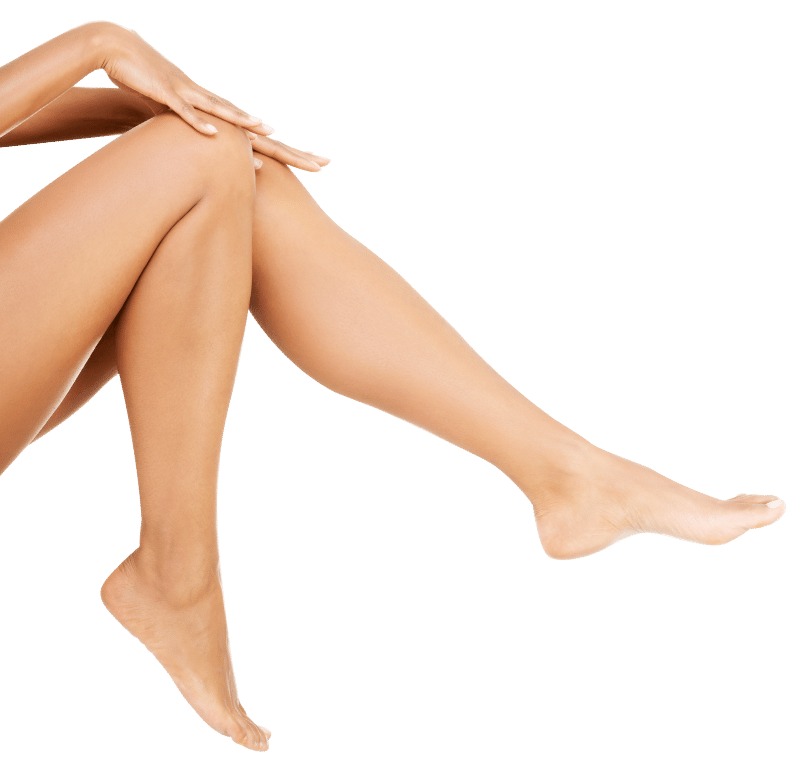
BOOK AN APPOINTMENT
Experiencing symptoms of vein disease? Book an appointment with one of the our Vein Specialists in New York.
Your information is encrypted and secure. By registering you confirm that you accept Terms and Conditions and Privacy Policy
What Happens at Your First Vascular Appointment?
The goal of your first vascular appointment is for the vein doctor to acquaint themselves with your particular conditions and goals. You’ll have to fill out a medical form with your symptoms and medical history, which will help the vein doctor determine if you have vein disease. The vein specialist will also ask about your symptoms — you should highlight all the symptoms, even if they seem unrelated to vein problems.
Your vascular doctor will also review your medical history and ask if you have a family history of vein problems. If your parents have a history of vein problems, it’s almost certain that you’ll have vein problems as well, eventually. The vein doctor will also examine your leg veins to identify spider veins, varicose veins, and other vein problems. Based on the assessment, they’ll determine the next steps and schedule an ultrasound diagnostic test.
What can I Expect at a Vascular Doctor?
After your initial consultation, the vascular doctor will schedule an ultrasound diagnostic test, known as duplex ultrasound. The primary goal of this test is to visualize the blood flow in your leg veins. Backward blood circulation and accumulated blood in the leg veins are common signs of chronic venous insufficiency. The diagnosis will allow the vein doctor to curate a personalized treatment plan for you.
The vascular doctor will discuss all of your possible vein treatment options, such as radiofrequency ablation, endovenous laser ablation, venaseal, clarivein, and sclerotherapy. You should only consult vein doctors that recommend minimally invasive vein treatments instead of vascular surgery. That’s because vascular surgery is now deemed outdated and obsolete — minimally invasive varicose vein treatments are more effective, safer, and more convenient.
The vein doctor will schedule your vein treatments. All minimally invasive vein treatments are performed as in-office, outpatient procedures under local anesthesia or topical anesthesia. Some involve injections (sclerotherapy), whereas others might involve small incisions on the skin’s surface (radiofrequency ablation, ambulatory phlebectomy). The vein treatment should conclude within an hour, following which you can resume your daily activities.
What are the Signs of Poor Circulation?
The following are some of the most common signs of poor circulation:
- Leg heaviness
- Leg pain
- Leg swelling
- Frequent leg cramps
- Restless leg syndrome
- Skin discoloration
- Leg ulcers (non-healing wounds)
- Spider veins
- Varicose veins
If you notice the aforementioned symptoms, there’s a strong chance you may have chronic venous insufficiency. Please schedule an appointment with your vein specialist in New York to explore your minimally invasive vein treatment options.
MEET OUR NEW YORK
VEIN SPECIALISTS
Dr.MICHAEL NGUYEN
Veins Specialist NYC
He leads the team of vein doctors offering the highest level of care at our Spider and Varicose Vein Treatment Center NYC.
HARVARD MEDICAL SCHOOL
Dr. JUAN D. MONTOYA
Veins Specialists NYC
Highly sought after for his expertise and excellent outcomes in Vein Treatments in Manhattan.
YALE MEDICAL SCHOOL
Dr. SAREH RAJAEE
Veins Specialists NYC
She has extensive experience with vein performing procedures based on New York City.
HARVARD MEDICAL SCHOOL
Learn more about our clinics, doctors and procedures!

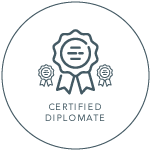

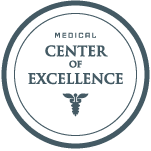



Contact us
Call us
Speak instantly with one of our team members; they will answer any questions you may have regarding insurance coverage, booking an appointment and our vein treatment locations. (646) 859-1833
Book online
Visit our Book Appointment page and instantly request an appointment at the New York vein center near you. We offer Free Insurance Verification before your appointment.
Get directions
Learn how to easily get to the New York vein center.
FEATURED POSTS BY VEIN DOCTORS
Get the Results You Want with Our Vein Treatments
Get the Results You Want with Our Vein Treatments If you're dealing with varicose veins or spider veins, you're not alone. Fortunately, New York Vein Treatment is here to help you achieve the results you want with our minimally invasive vein treatments. Led by...
Sclerotherapy: Spider Vein Treatment That Works
Sclerotherapy: Spider Vein Treatment That Works Are you tired of those unsightly spider veins that seem to appear out of nowhere on your legs, making you self-conscious about wearing shorts or skirts? Spider veins, those small, red, blue, or purple veins that often...
Varicose Vein Treatment Without Surgery: Benefits, Options, and Process
Varicose Vein Treatment Without Surgery: Benefits, Options, and ProcessIf you're dealing with varicose veins, you're not alone. Varicose veins are swollen, twisted veins that often appear blue or purple. They most commonly occur in the legs and are the result of...
The Best Vein Treatment in New York City
The Best Vein Treatment in New York City If you're dealing with the discomfort and unsightly appearance of varicose and spider veins, you're not alone. Millions of people in New York City and around the world are affected by these vein issues. Let's explore the best...
